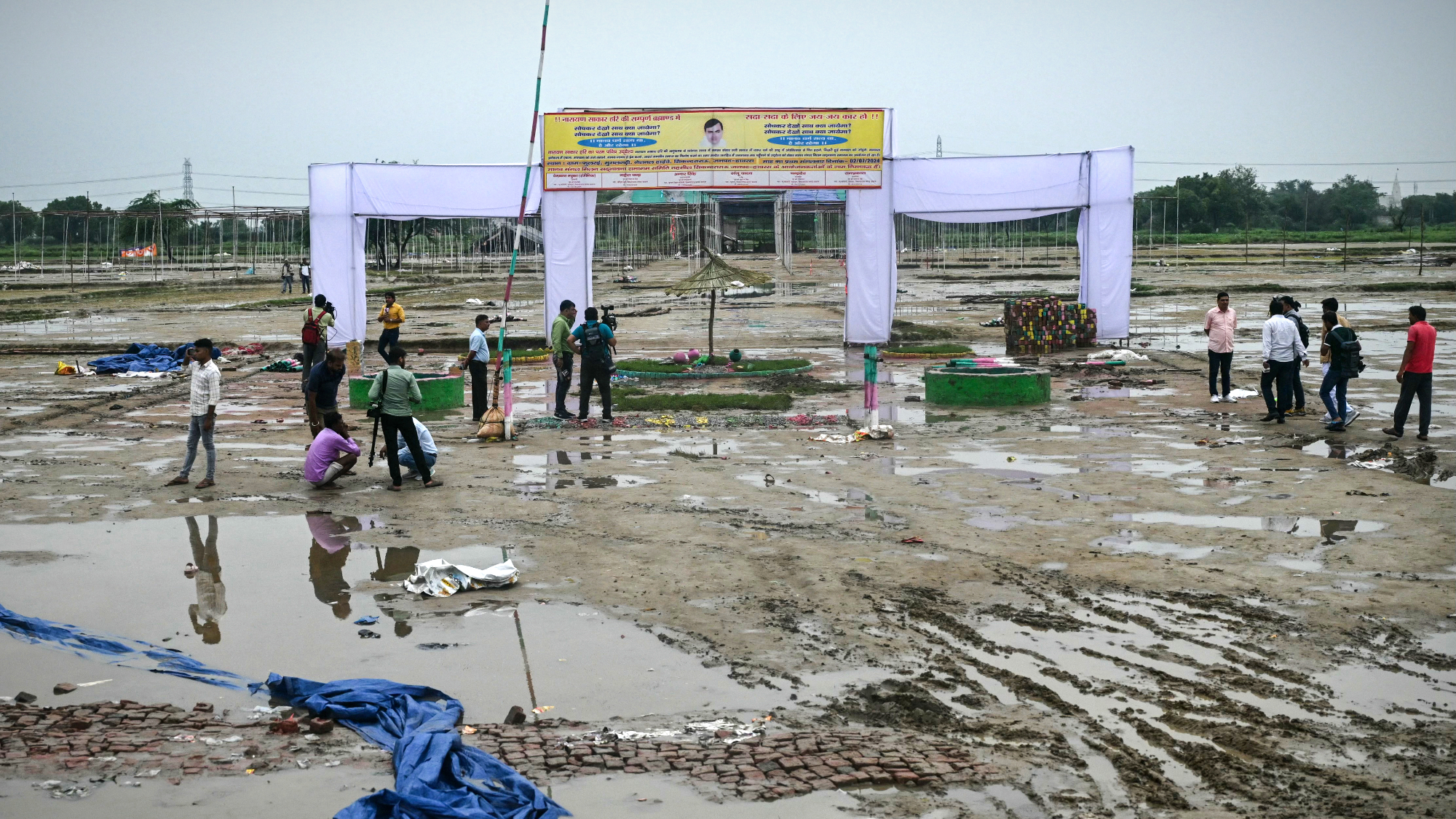Stampede kills at least 121 at India religious event
The cause seemed to be a "combination of sweltering heat and religious fervor"


A free daily email with the biggest news stories of the day – and the best features from TheWeek.com
You are now subscribed
Your newsletter sign-up was successful
What happened
A stampede at an overcrowded Hindu religious event in India's northern Uttar Pradesh state on Tuesday left at least 121 people dead, mostly women and children, police officials said. Dozens more were injured and taken to overwhelmed hospitals.
Who said what
It wasn't clear what caused the stampede, but it "appeared to be a combination of sweltering heat and religious fervor," The Washington Post said. The BBC said witnesses described a "fierce dust storm" that "led to confusion and panic" as people rushed toward exit from the enclosed open-air venue where Hindu guru Narayan Sakar Hari, known locally as Bhole Baba, had just finished preaching.
But "deadly stampedes are relatively common around Indian religious festivals," The Associated Press said. India is "good at drawing crowds, but not good at managing them," Manoj Kumar Jha, a member of India's Parliament, said in The New York Times. "Every year, these kinds of incidents keep repeating themselves, and we learn nothing."
What next?
Uttar Pradesh Chief Minister Yogi Adityanath ordered an investigation of the incident and said the families of the dead will each get $2,400 in compensation.
The Week
Escape your echo chamber. Get the facts behind the news, plus analysis from multiple perspectives.

Sign up for The Week's Free Newsletters
From our morning news briefing to a weekly Good News Newsletter, get the best of The Week delivered directly to your inbox.
From our morning news briefing to a weekly Good News Newsletter, get the best of The Week delivered directly to your inbox.
A free daily email with the biggest news stories of the day – and the best features from TheWeek.com
Peter has worked as a news and culture writer and editor at The Week since the site's launch in 2008. He covers politics, world affairs, religion and cultural currents. His journalism career began as a copy editor at a financial newswire and has included editorial positions at The New York Times Magazine, Facts on File, and Oregon State University.
